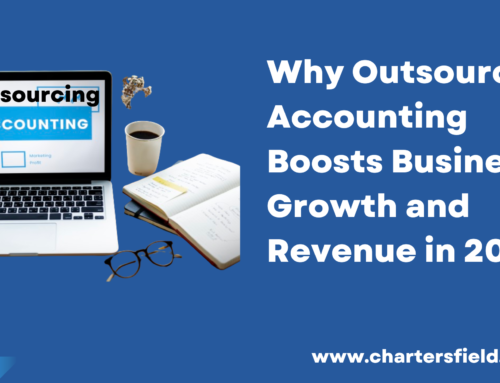I. Introduction
In the realm of modern business management, the quest for efficiency, productivity, and seamless operations reigns supreme. Enter Odoo ERP, a comprehensive enterprise resource planning solution that has been making waves across industries. At the heart of Odoo ERP lie its modules, each designed to address specific business needs with precision and flexibility. In this comprehensive guide, we embark on a journey to unravel the potential of Odoo ERP by delving deep into its key modules. Join us as we explore the features, benefits, and real-world applications of these modules and discover how they can revolutionize the way your business operates. Welcome to “Unveiling the Potential of Odoo ERP: An In-Depth Look at Key Modules.”
A. Brief overview of Odoo ERP
Odoo ERP, previously recognized as OpenERP, stands out as a flexible suite of business applications aimed at enhancing enterprise management. It presents modules covering CRM, sales, inventory, accounting, and more, allowing businesses to scale and tailor their ERP system to their specific requirements. Through its intuitive interface and seamless module integration, Odoo enables organizations to optimize operations, boost efficiency, and foster growth in today’s ever-evolving business landscape.
B. Importance of understanding key modules in Odoo ERP
Understanding the essential modules in Odoo ERP is crucial for businesses to streamline processes, make informed decisions, optimize investments, tailor the system, and promote user adoption. By fully grasping each module’s functionality, companies can identify inefficiencies, leverage data-driven insights, customize the system to meet specific needs, and effectively engage employees. This comprehensive understanding empowers businesses to unlock Odoo ERP’s full potential, driving operational efficiency, productivity, and strategic advancement.
II. Understanding Odoo ERP Modules
To utilize Odoo ERP effectively, it’s imperative to grasp the intricacies of its modules. These modules act as the foundation of the system, addressing various facets of business operations. By understanding their functionality and how they integrate, businesses can tailor their ERP implementation to suit their specific needs. This section will explore Odoo ERP modules, offering insights into their purpose, features, and importance within the ERP framework.
A. Definition of modules in Odoo ERP
In Odoo ERP, modules are discrete components that encapsulate specific functionalities or features within the system. Each module addresses a distinct aspect of business operations, such as sales, inventory management, accounting, or human resources. These modules are modular, allowing for individual installation, configuration, and customization according to organizational requirements. Through its modular approach, Odoo ERP provides flexibility and scalability without unnecessary complexity. Modules serve as the fundamental building blocks of the ERP system, providing a structured framework for the efficient management of diverse business processes.
B. Role of Modules in Customizing Odoo ERP According to Business Needs
Modules are instrumental in tailoring Odoo ERP to fit the specific demands of businesses. With a diverse array of modules covering various business functions, Odoo offers organizations the flexibility to customize their ERP system to match their unique requirements. Addressing specific areas like sales, procurement, accounting, and human resources, each module allows businesses to select and configure functionalities that align with their operational processes and goals. Furthermore, Odoo’s modular architecture enables businesses to expand or streamline their ERP implementation as needed, ensuring adaptability to changes in their industry or internal operations. Ultimately, modules serve as the cornerstone of Odoo ERP, empowering businesses to create a bespoke and efficient system that supports their growth and prosperity.
III. Essential Odoo ERP Modules
Within Odoo ERP, several modules are pivotal for effectively managing business operations. These modules offer crucial features and functionalities essential for streamlining enterprise management. This section will outline the core Odoo ERP modules, emphasizing their unique attributes, advantages, and importance in enhancing organizational efficiency and productivity.
A. Sales Module
The sales module within Odoo ERP serves as a pivotal component for efficiently managing the sales process. It integrates various features aimed at streamlining lead management, quotation generation, order processing, and customer communication. Through this module, businesses can effortlessly track leads, convert them into opportunities, and progress through the sales pipeline seamlessly. Moreover, it facilitates the creation of professional quotations and sales orders, ensuring smooth order fulfillment and invoicing processes. By harnessing the functionalities of the Sales module, businesses can boost sales team productivity, enhance customer satisfaction, and drive revenue growth.
1. Features and Functionalities:
Lead Management: Efficiently capture, track, and manage leads.
Quotation Generation: Quickly create customizable quotations with templates and pricing rules.
Order Processing: Seamlessly convert quotations into sales orders and manage order fulfillment.
Customer Communication: Enhance customer engagement through integrated email features.
Reporting and Analytics: Gain insights into sales performance with comprehensive reporting tools.
2. Benefits for Businesses:
Improved Sales Efficiency: Streamlined processes free up sales teams to focus on closing deals.
Enhanced Customer Experience: Timely communication and accurate quotations foster customer satisfaction.
Increased Revenue: Accelerated sales cycles and optimized processes lead to revenue growth.
Data-Driven Insights: Analyze sales data to identify trends and make informed decisions.
Scalability and Customization: Adapt the Sales module to evolving business needs for long-term growth.
B. Inventory Module
In Odoo ERP, the inventory module is essential for efficient inventory management. It offers a suite of features designed to streamline inventory operations, warehouse management, and supply chain processes. With real-time inventory tracking, seamless procurement, and integration with other modules, businesses can effectively control and optimize their inventory processes.
1. Features and Functionalities:
Real-Time Inventory Tracking: Track stock levels, locations, and movements in real time.
Warehouse Management: Efficiently manage warehouse operations, including receiving, storage, and shipping.
Procurement Optimization: Set reorder points, manage suppliers, and automate purchase orders.
Inventory Valuation: Calculate inventory value using various methods, such as FIFO or average cost.
Integration: Seamlessly integrate with other Odoo ERP modules for streamlined operations.
2. Benefits for Businesses:
Improved Inventory Control: Optimize stock levels, reduce stockouts, and minimize excess inventory.
Enhanced Efficiency: Streamline warehouse processes and procurement workflows for increased productivity.
Cost Reduction: Lower carrying costs and improve cash flow through optimized inventory management.
Better Customer Service: Faster order processing and delivery times lead to improved customer satisfaction.
Informed Decision Making: Gain valuable insights into inventory performance and demand trends for data-driven decision making.
C. CRM Module
In Odoo ERP, the CRM (Customer Relationship Management) module plays a crucial role in managing customer interactions efficiently. It offers a comprehensive set of features to track leads, manage opportunities, and nurture customer relationships throughout the sales process. Moreover, the CRM module facilitates automated communication, analyzes customer data, and generates insightful reports, empowering businesses to enhance customer engagement, increase sales, and drive revenue growth.
1. Features and Functionalities:
Lead and Opportunity Management: Efficiently capture, track, and manage leads and sales opportunities.
Customer Communication: Facilitate seamless communication with customers through integrated tools.
Task Automation: Streamline repetitive tasks and workflows to improve efficiency.
Reporting and Analytics: Gain insights into sales performance and customer behavior through customizable reports and dashboards.
2. Benefits for Businesses:
Increased Sales Efficiency: Centralized lead and opportunity management lead to faster deal closures.
Enhanced Customer Engagement: Personalized communication fosters stronger customer relationships and loyalty.
Improved Sales Forecasting: Real-time data enables more accurate sales forecasts and projections.
Streamlined Processes: Automation reduces manual effort and ensures consistency in customer interactions.
Informed Decision-Making: Analytics empower strategic decision-making, optimizing sales strategies and resource allocation.
D. Accounting Module
The Accounting module within Odoo ERP provides businesses with a robust platform for managing financial transactions and reporting. It encompasses various features to streamline accounting processes, including invoicing, expense tracking, bank reconciliation, and financial reporting. Moreover, this module supports multi-currency transactions, ensures compliance with international accounting standards, and integrates seamlessly with other modules. Such functionalities empower businesses to maintain accurate financial records, adhere to regulatory requirements, and make informed financial decisions efficiently.
1. Features and Functionalities:
Invoicing: Create and manage invoices with payment tracking.
Expense Tracking: Monitor and categorize expenses with attachment capabilities.
Bank Reconciliation: Match bank transactions and resolve discrepancies.
Financial Reporting: Generate customizable financial reports.
Multi-Currency Support: Manage transactions in multiple currencies seamlessly.
2. Benefits for Businesses:
Enhanced Financial Management: Streamline processes for improved accuracy and control.
Informed Decision Making: Access comprehensive reports for better planning.
Regulatory Compliance: Ensure adherence to accounting standards and regulations.
Improved Efficiency: Automate tasks to save time and reduce errors.
Global Operations: Facilitate international transactions for scalable growth.
E. Manufacturing Module
The Manufacturing module in Odoo ERP streamlines production planning, scheduling, and execution for manufacturing enterprises. It encompasses a suite of features for managing bill of materials (BOM), work orders, production scheduling, quality control, and inventory management. Additionally, it supports diverse manufacturing methods, such as make-to-order, make-to-stock, and batch production. Through seamless integration with other Odoo modules, the Manufacturing module enables businesses to optimize production processes, decrease lead times, lower costs, and uphold product quality and compliance standards.
1. Features and Functionalities:
Bill of Materials (BOM) Management: Create and manage BOMs for products.
Work Order Management: Generate and track work orders for production tasks.
Production Scheduling: Plan and schedule production activities efficiently.
Quality Control: Ensure product consistency and compliance through inspections.
Inventory Management: Manage inventory levels of raw materials and finished goods.
2. Benefits for Businesses:
Improved Efficiency: Streamline production processes for increased productivity.
Enhanced Quality: Implement quality control measures to maintain consistent product standards.
Reduced Lead Times: Optimize scheduling to fulfill orders quickly.
Cost Savings: Minimize waste and optimize inventory to reduce production costs.
Scalability: adapt operations to changing demand for flexible growth.
IV. Conclusion
In summary, Odoo ERP offers a diverse range of modules tailored to address various business operations, including sales, inventory management, CRM, accounting, and manufacturing. Utilizing these modules, businesses can streamline processes, enhance efficiency, elevate customer satisfaction, and foster growth. From managing leads and opportunities with the CRM module to optimizing production processes using the Manufacturing module, Odoo ERP equips businesses with the necessary tools and functionalities to excel in today’s competitive landscape.
Moreover, Odoo ERP’s modular architecture enables businesses to customize their ERP implementation according to their specific needs and scale their operations as they expand. Whether automating sales processes, refining inventory management, or improving production efficiency, Odoo ERP modules empower businesses to optimize operations and achieve strategic goals.
In essence, Odoo ERP is not merely a software solution but a comprehensive platform enabling businesses to streamline operations, make informed decisions, and drive success. By embracing Odoo ERP and its key modules, businesses can stay ahead, adapt to evolving market dynamics, and thrive in the digital era.



